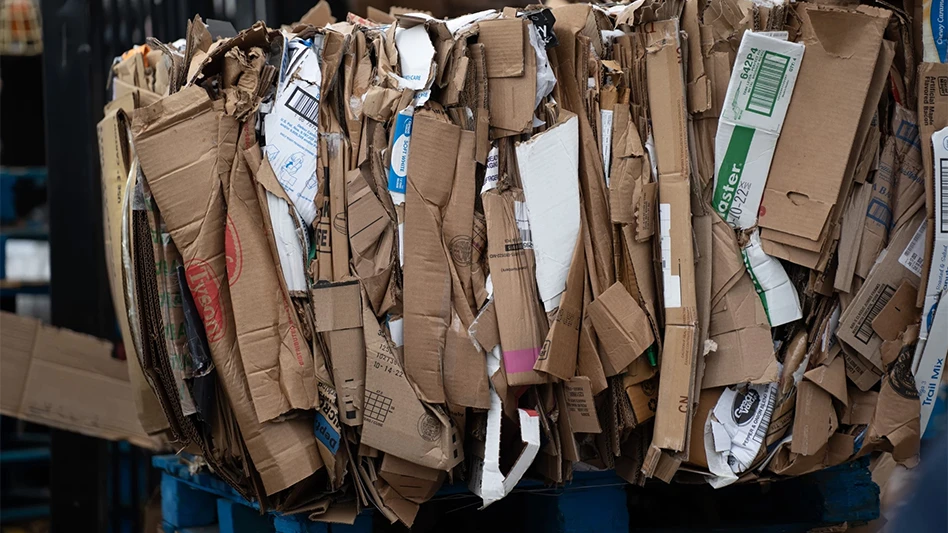
Photo courtesy of International Paper
Memphis, Tennessee-based International Paper (IP) has released its annual report and a sustainability report covering its 2022 activities and notes consuming a sizable amount of scrap paper.
“We recycle approximately 1 million tons of old corrugated containers (OCC) and mixed and white paper through our 16 U.S. recycling plants,” the company states in a section of the report.
IP lists recycled linerboard and recycled medium among six grades produced in its Industrial Packaging business segment.
The company says it also consumes recovered fiber abroad, writing, “In EMEA [Europe, Middle East and Africa], our operations include a recycled fiber containerboard mill in Morocco and one in Spain.”
IP reports its global network of recycling collection, processing and mill facilities handled some 7 million tons of scrap paper last year, noting some 5 million tons was used to make recycled-content products.
In North America, where IP still consumes sizable amounts of wood chips, the company says just 10 percent of the fiber it consumed last year consisted of scrap paper.
In terms of feeding the recycling supply chain, IP says 93.5 percent of its pulp and packaging products are recyclable, reusable or compostable, including 93.5 percent recyclability of its North American products and 100 percent recyclability of its EMEA products.
“Our embrace of circularity is evident in our manufacturing processes, where we optimize resources by: 1) designing out waste and pollution; and 2) maximizing our use and reuse of all materials, resources byproducts and residuals," IP says.
The company adds that consuming 5 million tons of recovered fiber annually worldwide makes it one of the world’s largest users of recovered fiber.
The company also claims it is maintaining a focus on landfill diversion of mill byproducts. IP points to a recent effort involving its Savannah, Georgia, mill to divert more than 44,000 tons of byproducts to beneficially use as a Georgia Department of Agriculture registered liming agent.
The company says more than 200 farmers in that region used the byproduct to offset their costs and obtain nutrients to help grow crops such as corn, cotton, onion, peanuts, soybeans and wheat. “Materials that were previously disposed in the local landfill are now being repurposed as a byproduct," IP adds.
IP says it also has helped develop ClimaShield barriers, which it says are a unique line of Forest Business Analytics-certified recyclable and re-pulpable coatings that replace nonrecyclable wax coatings and work with existing equipment, processes and packaging systems.
IP says ClimaShield can provide “an end-of-life solution for recovery, as the boxes [coated with it] can be recycled.”
The entire 109-page 2022 sustainability report can be found here.Latest from Recycling Today
- ArcelorMittal legal battle with Italy continues
- Altor program boosts EPS recycling
- IP to spin off non-North American operations
- Flexible Film Recycling Alliance report outlines progress
- RERF opens Avagliano award nominations
- Eriez expands European sales network
- Gränges increases sales volume in 2025
- Aduro selects Netherlands as site for industrial scale-up facility





